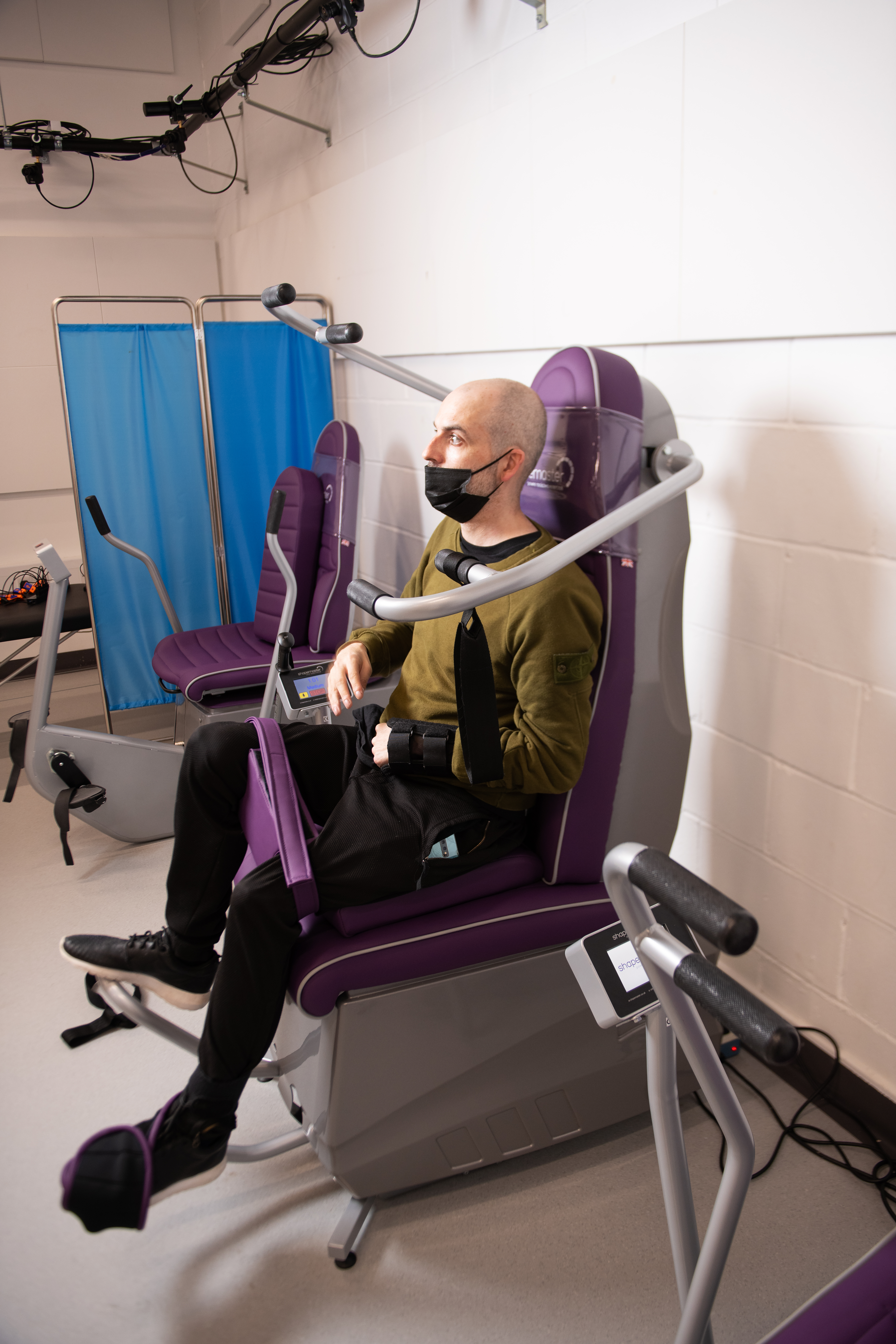Positive outcomes from an intensive exercise programme using a Technology-Enriched Rehabilitation Gym for the recovery of function in people with chronic stroke
Researchers from Department of Biomedical Engineering at the University of Strathclyde, Glasgow, carried out a study1 to assess the feasibility of Technology-Enriched Rehabilitation Gym (TERG) for the recovery of function in people with chronic stroke.
Rehabilitation improves post stroke recovery with greater effect for many when applied intensively within enriched environments. The inability of healthcare providers to deliver recommended levels of rehabilitation, due to current resources, motivated the development of a technology-enriched rehabilitation gym that enables individuals under supervision to perform high-intensity self-managed exercises safely in an enriched environment.
The rehabilitation programme took place over an eight-week period with people living with stroke affecting their mobility or communication but otherwise well enough for light or moderate exercise. The TERG included Innerva (Shapemaster) Cross Cycle, Chest & Legs and Seated Climber power assisted exercise machines alongside virtual reality (immersed and non-immersed), treadmills, weight suspension and movement resistance located in a gym-like space on campus at the University of Strathclyde.
The Innerva (Shapemaster) power-assisted Chest & Legs machine, GripAble, Motek Medical “Cube”, and “Functional Squat” were identified as being “highly useable” by participants.

While this study was not designed to test efficacy, positive change to all outcome measures was noted: in particular, the changes to gait (mean reduction of 10.6s in the 10m walk test) and sit to stand ability (mean reduction of 8s in the five times sit to stand test) and the moderate effect sizes (0.74 and 0.60) estimated for Rivermead Mobility Index and Stroke Impact Scale-16, respectively.
The report concludes that this novel approach to stroke rehabilitation using a TERG with professional supervision is feasible, with 82% attendance across almost 1,000 hours of delivery and with only minor adverse effects reported. Reassuringly, the intervention was overwhelmingly well received by this diverse group of chronic stroke survivors.
This approach has the potential to meet the overwhelming need for greater access to effective rehabilitation but requires an experimental approach, with a statistically powered sample, to confirm the early promising findings.
For the full published report, see our Knowledge Zone